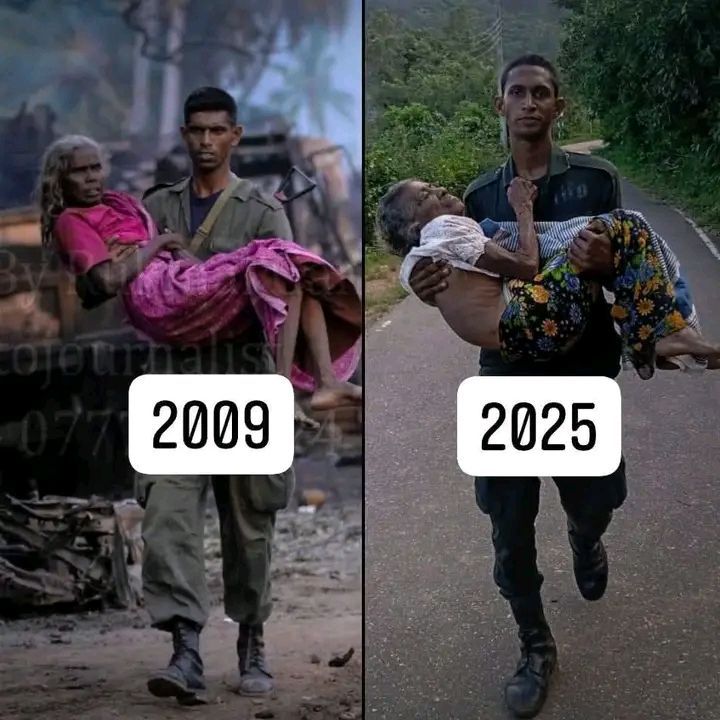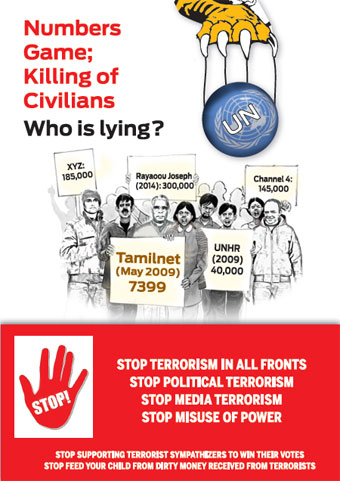The UNP’s travails – Marginalizing Sinhalese by UNP
When talking of electoral setbacks in the Colombo district, it is not just the UPFA that has suffered. The UNP has suffered even more and in terms of critical damage, if one applies the principles of political triage, the UNP has to be given priority. The UNP’s abysmal performance in the Colombo district will have an impact not just on the UNP but the whole country as well. Colombo is the district where the UNP has always been strongest particularly Colombo city but they have fared very poorly in the five core electorates of Colombo where they have traditionally been strongest. In that most UNP of electorates, North Colombo, the UNP has got only 28% of the vote. In Colombo West, they got 33% and the same percentage in Colombo East. In Borella, it’s slightly better at 42% and in Colombo Central it was 46%. These are all electorates that the UNP used to win with massive margins in the past.
Even as recently as the last Western PC election held in 2009, the UNP got 52% of the vote in North Colombo, 54% in Colombo Central, 50% in Borella, 49% in Colombo East, and 62% in Colombo West. The excuse will be trotted out that the reason why the UNP has done so poorly is because Mano Ganesan’s Democratic People’s front contested separately. To be sure, the DPF got 22% of the votes in North Colombo, 10% in Colombo Central, 27% in Colombo West, 14% and Colombo East and 5% in Borella. Had these votes been added to those of the UNP, then we would have something like the old percentages that the UNP used to get in these electorates in the past. But the DPF is not the UNP any more than the SLMC is UNP and if we are to add DPF votes to the UNP we might as well add SLMC votes as well on the grounds that Muslims have been traditionally UNP!
In the East, the Muslim vote that used to go to the UNP now goes to the Sri Lanka Muslim Congress and one cannot argue any longer that this vote ‘belongs’ to the UNP. Likewise, the Colombo city vote that has gone to Mano Ganesan’s DPF is now an ethnic vote which will not come back to the UNP unless Ganesan contests on the UNP list. This is the latest episode of the UNP handing over their minority vote base to ethnic entrepreneurs. Ganesan first contested with the UNP. He has now built up his base among the UNP’s Tamil voters and taken them out of the UNP. The UNP had a disastrous policy of forming alliances with minority parties, sideling its own minority candidates at the behest of its new found allies, ensuring that the UNP minority vote goes to candidates of minority political parties and through such a process basically donating their votes to outsiders. Mano Ganesan himself is responsible for no mean amount of disruption within the UNP. At the last parliamentary election, Ganesan insisted on contesting on the UNP list in the Kandy district with a view to communalizing the Tamil UNP vote in Kandy.
In order for Ganesan to contest, the UNP General Secretary Tissa Attanayake had to step aside from the contest as the Kandy district could return only four parliamentarians with no possibility of a fifth candidate winning. With Rauff Hakeem, Abdul Cader and Abdul Haleem contesting, all three preferences of Muslim UNPers would go to the three Muslim candidates. With Mano Ganesan commnunalizing the Tamil vote as well, there was no possibility of two Sinhala candidates being elected with the other two preferences of Tamil voters going to another Tamil candidate on the UNP list or to a Muslim. So Tissa Attanayake stepped aside and came in on the national list. Today the UNP has only one Sinhala MP (Lakshman Kiriella) in the Kandy district in a situation where the Kandyan Sinhalese vote especially in the heartland of the Kandy district was one of the main bases of the UNP. After years of losing its minority voters to communal political parties, the UNP today is but a shadow of its former self. Though it conspicuously espouses the cause of the minorities, the minority voter treats the UNP with derision – as an instrument to be used for their communal purposes when they want to and only to be unceremoniously discarded when they are no longer required. Rauff Hakeem was elected on the UNP ticket in Kandy and is now serving in the Rajapaksa government as a minister.
After years of rooting for the minorities and losing votes among the Sinhala voting public, the UNP got as a reward for their pains 53 votes in the Kilinochchi electorate, 60 votes in the Jaffna electorate, 26 votes in the Point Pedro electorate, 89 votes in the Chavakachcheri electorate and so on at the Northern PC elections held in 2013. What we saw at the recently concluded WPC election is that the same thing is happening to the UNP in the Colombo city as well. These are signs that the UNP will ignore at its peril. The UNP should get rid of this delusion that they will be able to win some day at a presidential election with the help of the vast majority of the minority vote and a minority of the majority vote. If a UNP presidential candidate wins a presidential election in that manner, the country will soon become ungovernable. The UNP, if it is to govern at all, will have to carry the Sinhala majority community with them in addition to the minority vote.
The UNP is caught up in a vicious cycle in terms of its alliances with minority parties. Because of the fear that they will fare poorly without the communal parties, they allow the communal party leaders to contest on the UNP list in order to boost the UNP’s election figures. With each cycle, the remaining minority community votes in the UNP are encouraged to cast a vote for the communal leaders thus depleting the UNP’s minority vote bank even further. Now that Mano Ganesan has got a lot of votes in the Colombo city, he will most probably be allowed to contest on the UNP list at the next parliamentary election in order to make the UNP result look better. But Ganesan will only make use of that opportunity to take yet another slice of the UNP Tamil vote with him (if there is anything left to take.) The UNP can break this vicious cycle only by asking the communal party leaders to contest separately, win their seats and then form a coalition with the UNP so that the UNP voter votes only for UNP candidates.
783 Viewers








